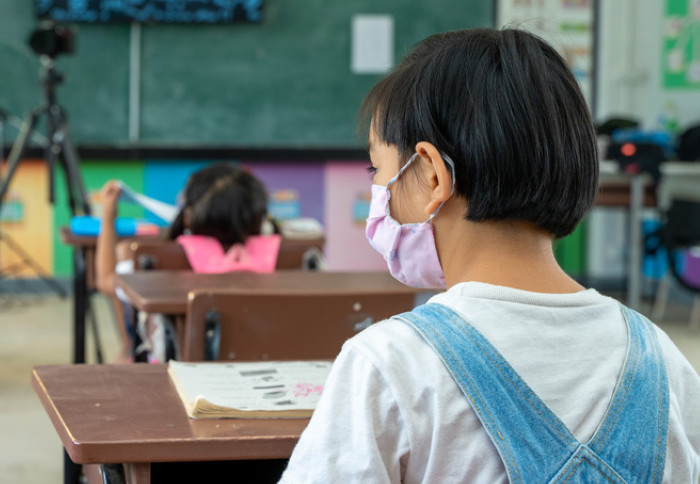

Imperial researchers are set to begin a study exploring how the virus causing COVID-19 is transmitted by children.
Since the virus emerged, the disease has disproportionately affected older adults and vulnerable patient groups, with children generally less susceptible to disease and having generally milder symptoms.
However, the role of children in transmitting the virus – both to other children as well as to adults - has been unclear.
As part of a number of projects funded today by the National Institute for Health Research (NIHR), Professor Shiranee Sriskandan, from Imperial’s Department of Infectious Disease, will investigate how quickly and efficiently the SARS CoV-2 coronavirus might be spread by schoolchildren, both at school and in the home.
By monitoring confirmed cases within a school and those children and family members they have contact with, the project aims to answer a number of key questions, including whether children without obvious symptoms are able to transmit the virus, as well as how long children can carry infectious virus.
The findings will help us to better understand how coronaviruses are transmitted between children, as well as from children to adults.
The hope is this information could help to prevent transmission involving children and enable us to use appropriate measures to intervene if infection occurs.
Professor Sriskandan said: “Children all over the country have begun returning to school after a long period away, but a number of questions remain around the risk from COVID-19 - both for the children themselves and also among the wider public.
“There is an increasing body of evidence now suggesting that children do not transmit the virus as much as adults and generally experience milder symptoms. Our study will largely focus on how transmission could occur. We hope to answer some of the key questions about coronavirus transmission to provide useful information on interventions that might reduce the risks.”
Protective measures
Currently, there are a number of public health responses already in place for cases of COVID-19 infection within schools, at the local and national level. Under existing guidance, if a child is confirmed to have COVID-19 via a test, then Public Health England may advise all children within the same class ‘bubble’ to quarantine for two weeks, in addition to the infected child remaining at home.
We hope to answer some of the key questions about coronavirus transmission to provide useful information on interventions that might reduce the risks Professor Shiranee Sriskandan Imperial College London
At this point, once a positive case is identified, the team which includes Public Health England colleagues will invite the affected school to participate in the study. The team will contact the child’s family to recruit them to the study – including taking blood, saliva, and stool samples – as well as the contacts within their class bubble, to track any onward transmission. In addition, they will also look at how the virus may be transmitted through the air and via surfaces the children touch.
Due to the forensic nature of the work, the researchers will focus on a small number of schools in the London area. The team hopes that by focusing on such a localised group, and analysing a range of biological samples, they will be able to answer a number of questions, including whether children shed live or dead virus, as well as the most effective routes for transmission.
The researchers hope to be able to share initial findings within six months.
The funding comes as part of a larger package from NIHR and UK Research and Innovation (UKRI), providing more than £5 million in funding to eight research projects to help inform policy decisions about COVID-19.
Supporters

Article text (excluding photos or graphics) © Imperial College London.
Photos and graphics subject to third party copyright used with permission or © Imperial College London.
Reporter

Ryan O'Hare
Communications Division

Contact details
Tel: +44 (0)20 7594 2410
Email: r.ohare@imperial.ac.uk
Show all stories by this author




Leave a comment
Your comment may be published, displaying your name as you provide it, unless you request otherwise. Your contact details will never be published.